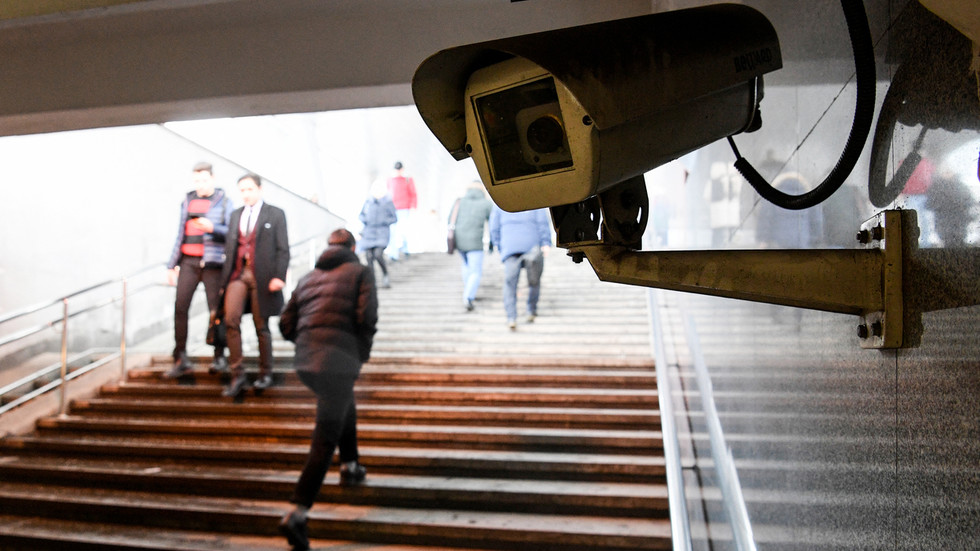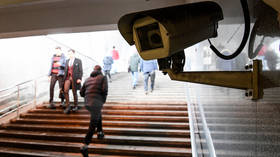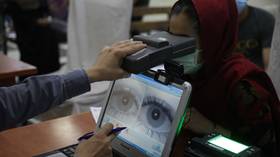
A new law forbids discriminating against those who refuse to provide such data

FILE PHOTO. A picture shows a surveillance camera in an underground passage in Moscow. © AFP / Kirill Kudryavtsev
Russian President Vladimir Putin has signed into law a bill that regulates the collection and use of the biometric data of the country’s citizens.
The legislation approved by Putin on Thursday introduces a new state-operated Unified Biometrics System (UBS), set to be created next year. The UBS will handle all biometrics collected from Russian nationals, including face images and voice samples. However, the law prohibits forcibly collecting such data.
Russians seeking to maintain the privacy of their biometric data will be able to opt out of having it collected. They will also be able to easily have it deleted from the system should they change their minds if it has already been gathered. The legislation also outlaws any discrimination against those who decide not to provide such information, stating that a refusal cannot be used as grounds for denying an individual state-provided services or employment.

Effectively, the law makes the state the sole operator of biometric data in the country. Previously, any legal entity was able to collect and use such data in Russia. The legislation also restricts the participation of foreign actors in biometrics collection, enabling only state-owned entities to gather such data.
The law is seen as a foundation to build upon, and Russian lawmakers are expected to work further and introduce penalties, up to criminal liability, for leaking the personal data of the country’s citizens, Vyacheslav Volodin, the speaker of the parliament’s lower house, the State Duma, indicated.
“The bill is designed to stop the distribution of biometric data by various commercial organizations and ensure state protection of it. The next step will be the introduction of criminal and administrative liability for the forced collection and leakage of biometric data,” Volodin explained last week, when the bill was passed by lawmakers.




